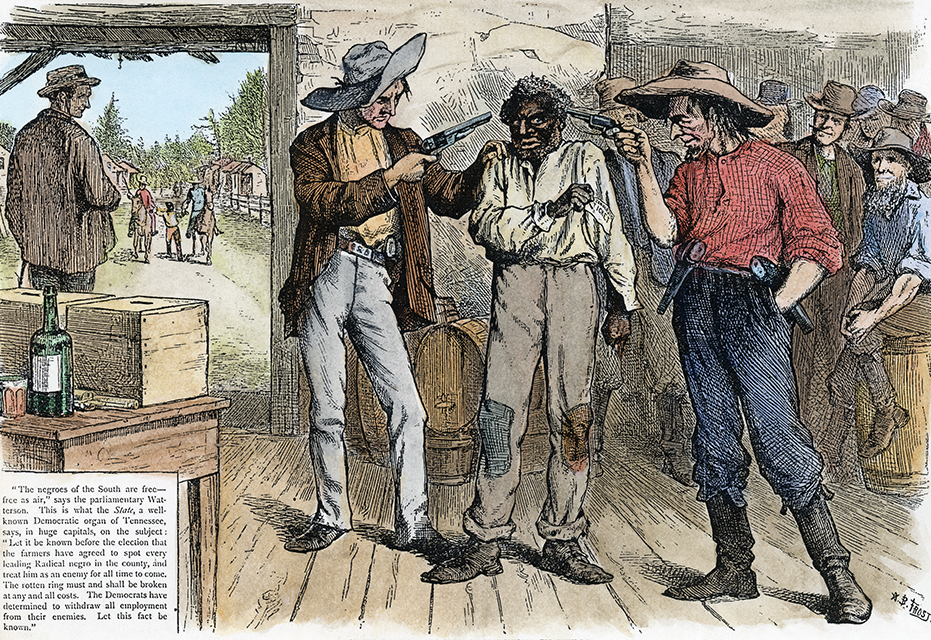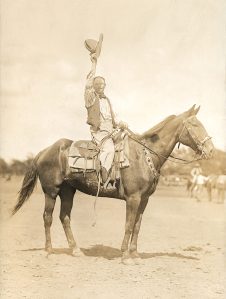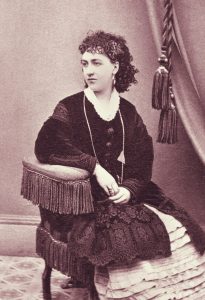James Whitman is a historian and professor at Yale Law School. His 2017 book, Hitler’s American Model, explores how racist legislation enacted by the United States influenced development of the Nazi-era statutes on race and citizenship in Germany that came to be known as the Nuremberg Laws.
How did you come to this topic?
I’m not the first to wonder if the Jim Crow era influenced the Nazis, but I looked a little harder than other people had and found what I think was real influence. I began by pulling Mein Kampf off the shelf; I found a passage in which Hitler describes America as the one state that is making progress toward creation of a healthy racial order. And I thought there must be more.
Explain this startling link.
Upon taking power in 1933, the Nazis wanted to establish a race-based legal regime that in essence would reduce Jews to second-class citizens and ban, indeed criminalize, sex and marriage between Jews and Germans. This led to the Nuremberg Laws, enacted in 1935 and informed by what the Nazis termed “material of interest” in American law.
Nazis saw the United States as a pioneer?
In regard to citizenship, the first Nuremberg laws, as they are usually described, related to the de facto second-class citizenship accorded African Americans. Technically, the United States could not deny African Americans citizenship. However, in practice, especially but not exclusively through the deprivation of voting rights in the latter 19th century, blacks in America were subjected to forms of second-class citizenship that were of real interest to Nazi lawyers. Far right-wingers in Germany had been interested in this for a long time. After the Spanish-American War, the United States also created a legal form of second-class citizenship for the people of the Philippines, Guam, Puerto Rico, and other conquered territories. These populations couldn’t be granted citizenship, but constitutional law had no provision under which to designate second-class citizenship. In decisions called the Insular Cases, the Supreme Court created a new status—“non-citizen national”—which still exists. Nazi lawyers were very interested in these American innovations.
What else did the United States pioneer?
In the early 20th century, the idea that interracial marriage was morally objectionable or dangerous was very widespread in the world. But the United States stood out as the creator of laws cracking down on interracial sex, interracial marriage, and their perceived danger. American willingness to come up with these legislative schemes reflected something that we still see in the USA today—an innovative legislative energy rarely found elsewhere. To the Nazis, this approach was intriguing, even exciting.
How did they learn about American race law?
In 1935, 45 Nazi lawyers came to America on a “study trip.” One man in particular was instrumental in collecting knowledge about American race law. In 1933-34, Heinrich Krieger was an exchange student at the University of Arkansas Law School. On his return to Germany, Krieger became the main source informing the Nazi investigation that produced the Nuremburg Laws. In 1936, Junker & Dünnhaupt, a Berlin publisher sympathetic to the Nazis, brought out Krieger’s Das Rassenrecht in den vereinigten Staaten—Race Law in the United States. It’s quite an interesting book.
Nazi studies went beyond Jim Crow.
Our memory of race law in America is mostly of the South and the treatment of American blacks there. But American racial law involved a much broader swath of the country, and affected many populations beyond the black population. Thirty states had anti-miscegenation statutes banning interracial marriage, targeting not only blacks but Asians and to some extent Native Americans. These laws interested the Nazis, who also were intrigued by American immigration law. In the late 19th century, the United

States restricted immigration, particularly from China and Japan, and in the 1920s imposed national immigration quotas that Hitler praised in Mein Kampf. Those immigration laws, like anti-miscegenation laws, belonged to a national pattern of effort aimed at maintaining the white Anglo-Saxon character of the United States that went well beyond anything going on in the South.
Yet the Nazis officially opposed lynching.
That is one of the most dramatic and frightening observations. After Hitler took power, lynchings occurred in Germany, but the Nazi Party leadership was not in favor of lynching. They favored control of institutions and state-managed action—hence the Nuremberg Laws and the Final Solution.
What is the takeaway?
America was so much the leading racist jurisdiction that even Nazis looked here for inspiration. They wanted nothing to do with American liberal and humanitarian currents, but when it came to race law, they saw the United States as a country that had started down a path that they wanted to walk to the final destination. That’s important for Americans to understand: we cannot wish away the fact that Nazis could see aspects of American law as pioneering—and in some measure inspiring.
What was so inspiring?
Nazis liked the relatively politicized character of American law.
What’s an example?
America’s openness to imposing relatively harsh measures on interracial marriage, and the broader theme of American criminal justice. Before coming to power the Nazi party and other far right groups in Germany had very little success shaping legislation there, especially criminal legislation. The Nazis didn’t want an American-style democracy, but they liked laws that the American legislative process produced. We have a long tradition, in many aspects of society, of deferring to the political process. American racists had much more success in shaping legislation here because the American process is more open to democratic political influence. American criminal law is the product of tough-on-crime politics. Elected officials here made and make criminal law policy with remarkable little regard for what trained criminal lawyers and criminologists believe would be the sound approach. And that’s part of what appealed to the Nazis, who eventually overruled the moderate approach advocated by trained German lawyers, who supported basic doctrines like the presumption of innocence.
White supremacy and court battles over executive actions are front and center. Did you expect this?
What I learned makes me more uneasy about American institutions than I used to be. I finished the proofs of the book the day before the 2016 election, having no idea how much these questions would remain on the menu. The institutions that we hope will hold up are the institutions that produced the laws that the Nazis found so interesting.





